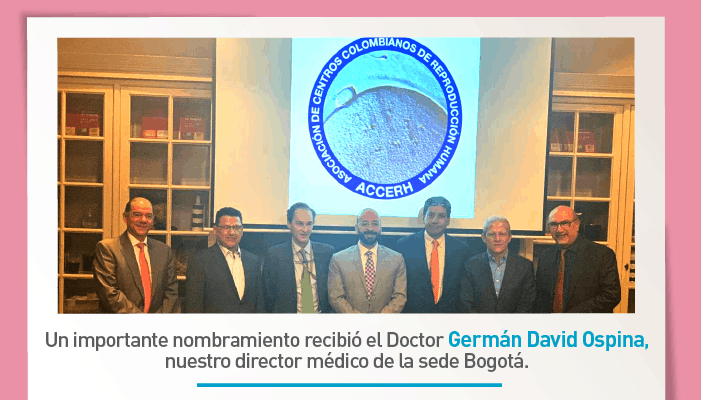THE PLACE OF THE FAMILY TODAY
Contemporaneity has brought about transformations in society. Economic, political, and social aspects have changed, and as a result, the family has also undergone notable changes that imply a reflection on the conceptions of family. The great diversity of family structures that exists today, which is observed both in space and in time, has forced researchers on the subject to speak no longer of “family,” but of “families.”
DIFFERENT FORMS OF ORGANIZATION FAMILY AND ITS DYNAMICS
Currently, in addition to talking about traditional families, we can also talk about families that, although they were non-existent or hidden until the end of the 20th century, are now beginning to emerge or gain visibility. These are families formed by heterosexual couples without marrying; lesbian or homosexual couples; single parents without a partner (due to separation, divorce, widowhood, or by their own decision); stepfathers and stepmothers; adoptive parents; surrogacy, transsexual people, who in many cases do not have a biological link with the child; that is, families that arose thanks to the donation of gametes, surrogacy among other possible assisted reproduction techniques.
The emergence of these families that have their origins in the use of assisted reproduction techniques has given rise to the distinction between biological and social paternity/maternity with possible multiple combinations. These new forms of family organization have generated greater plurality and complexity in the behaviors of the members of the family group through forms of coexistence and organization that are different from the traditional model.
FAMILIES THAT PRESENT A DIFFERENT COMPOSITION
TO THE TRADITIONAL ONE
With advances in reproductive science, new possibilities for experiencing parenthood have gained visibility. We are currently faced with an amalgam of new families that a few decades ago seemed like fiction. Reproductive techniques have separated parenthood from sexuality, just as contraceptives have separated sexuality from parenthood. People of any gender identity – who resort to surrogacy, egg and/or sperm donation, or other techniques, can have children. With that, the constitution of a heterosexual couple is no longer the only fundamental element to engender a child.
A diverse family will be understood as that family that does not comply with heteronormativity, which means that it is not composed of a parental union composed of a heterosexual man and woman, but by man-man, woman-woman unions, single man, single woman and trisal family. Because sexual diversity also includes bisexual, transsexual and intersexual people, it must be taken into account that these families may be more diverse than understood by heterosexual logic.
A NEW PARADIGM TO UNDERSTAND FAMILIES TODAY
Assisted reproduction techniques contribute to expanding this complexity and deepening questions, concerns and anxieties. These techniques immerse us in new ways of constituting a family, in which affective alliances and wills take center stage over biological ties. What really seems to matter is not who raises the children, but how parenting is exercised and under what conditions it is carried out.
It is important that we expand the concept of family at a social level, in order to conceive and validate the different types that exist and understand that there is no single “ideal” model of family, and, therefore, the other configurations are not “dysfunctional” because they do not comply with that model, since that makes these families feel “abnormal”, “ashamed”, “criticized”, that is, it is something that generates pain and anger for not complying with what is “expected”.
LOVE IN THE FAMILY SHOULD ALWAYS BE PRESENT NO MATTER HOW IT IS FORMED
In addition to that, it is important to mention that the family has been modified to such an extent that its deepest meanings are transcending kinship and require contextualized understandings.
A person’s parental skills go far beyond their sexual orientation, hence diverse families can follow a more normative course, promoted by the predominant heterosexual logic.
It is important to highlight that the greatest value that lies in families is the quality of the relationships that are established within them, love, understanding, support, tolerance and acceptance, which allow their members to develop in an integral way, rather than being aware of whether they comply with the “norm” or not.
ALL DIFFERENT, ALL ARE FAMILIES
The concept of family, in addition to moving increasingly towards inclusiveness, indicates that family structure is not a determining factor in deciding whether a family is functional or not.
We reiterate that the concept of family cannot be restricted exclusively to a heterosexual configuration, because, in this way, the multiplicity of family modalities that have been constituted in the course of the 21st century is ignored.
By insisting on the heterocentric conception, these new families are denied fundamental rights, such as the right to experience their forms of conjugality and kinship.
There are many types of family and that is something that we must transmit to boys and girls from the earliest childhood, precisely because when we are children, we understand the world based on what is around us, the people and the realities that we have about.
The most important thing is to maintain that there is no ideal type of family; that all family configurations are valid, deserve to be respected and in all of them well-being, health, care, respectful upbringing and affection must be guaranteed.
Normalizing new ways of being a family is essential for both adults and children.
This article is taken from the talk given at the Virtual Webinar Voices of Hope 2022. Its author is Helena Prado Clinical Psychologist. Couple and family therapist. Diploma in Psychology of Human Reproduction under the auspices of the Latin American Network of Assisted Reproduction (REDLARA). Collaborating psychologist at the Institute of Gynecology of the Federal University of Rio de Janeiro (UFRJ); works in the Human Reproduction department at the Moncorvo Filho Hospital. Psychologist at the Pró-fértil Clinic Center for Reproductive Medicine. Member of the Psychology Committee of the Brazilian Society of Human Reproduction (SBRH). Member of the Brazilian Society of Assisted Reproduction (SBRA). Author of the book: Ser pai & mãe no século XXI. Desejo aliado à tecnologia (Being a father & mother in the 21st century. Desire allied to technology). Author of chapters published in books on Assisted Reproduction. For more information: Instagram: @helenapradol E-mail: [email protected]

